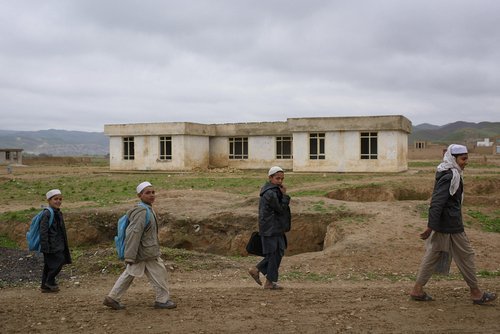Shadow wars: the Taliban’s campaign against the Islamic State Khorasan Province
This paper examines the evolution of the Islamic State Khorasan Province (ISKP) from 2021 through 2024, tracing its transformation from a severely weakened entity to an adaptive, decentralised organisation capable of posing a persistent threat in Afghanistan.
Drawing on over 100 qualitative interviews with ex-ISKP members, supporters and sympathisers, it provides an insider perspective into ISKP’s strategies, challenges and resilience in the face of sustained Taliban counteroperations.
Despite significant losses – including the elimination of key leaders, mass surrenders and the disruption of critical operations – ISKP has maintained visibility and relevance. At the same time, Taliban counterterrorism strategies have evolved. The Taliban’s campaign has suppressed ISKP’s territorial and operational ambitions but has not eradicated its ideological appeal.
The border business: a political economy analysis of checkpoint taxation in Afghanistan
Checkpoints and the transit taxes that can be levied at them have been central to the vagaries of Afghan state formation and conflict—and are crucial to understand the rise to power of the Taliban. In this new working paper Sarajuddin Isar posits that checkpoint taxation is a key means of creating and negotiating rents between state and non-state actors, driving political settlements and conflict.
The Gaza effect: how the Israel-Hamas war is shaping armed group behavior and the prospects of engagement
This rapid analysis look at the impact of the the Israel-Hamas war on the behaviour of armed groups, and constraints on engaging with them
Citizens without states: the implications of non-recognition for people in de facto states
This paper examine the impact of non-recognition of de facto authorities on the people living in these territories. Arguing that the negative social, economic and well being impacts are profound, it urges for a re-think approaches to de facto authority.
Taliban arms management practices
This paper argues that we should not see ‘political’ and ‘criminal’ groups as separate categories. Instead, we should envision a spectrum of motives and practices across all armed groups, regardless of how they are labelled.
Taliban practice and interpretation of IHL and human rights norms
Part of a larger research programme hosted by the Geneva Graduate Institute, this study examines the Taliban insurgency’s practice and attitudes toward IHL rules and human rights norms.
Rethinking armed group control
Prevailing understandings of control – which focus on territorial dividing lines and acts of violence – are incomplete. Our paper argues that armed group control should instead be broken down according to how armed groups seek to influence populations.
Taliban narratives on Al Qaeda
Much has been written about the Taliban and Al Qaeda since 2001, but there is little consensus. Based on over 100 interviews with insurgent commanders and others, this report examines the Taliban’s strategic calculus for maintaining ties to Al Qaeda.
Taliban attitudes and policies towards education
There are significant debates and differences of opinion within the Taliban on education. Based on original documents and interviews, our paper explores written Taliban policy on education, and practice on the ground.
Rebel rule of law: Taliban courts in the West and North-west of Afghanistan
Seizing on widespread dissatisfaction with formal justice, Taliban courts quickly settled disputes that the state and customary institutions could not. It also enabled the Taliban to infiltrate new areas and enforce a strict set of rules on the population.










